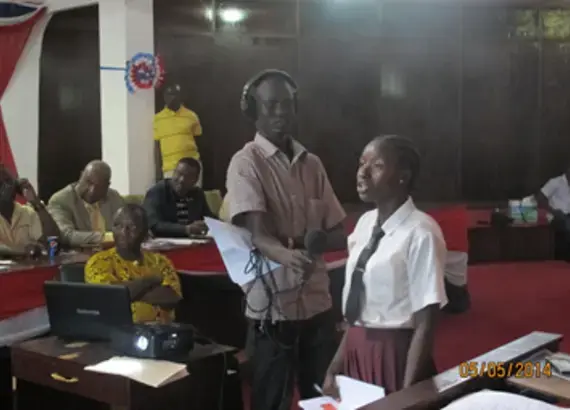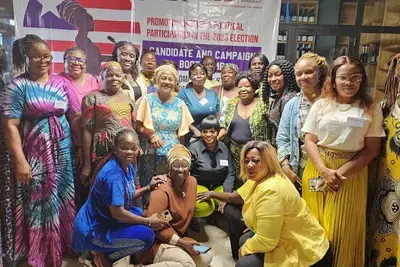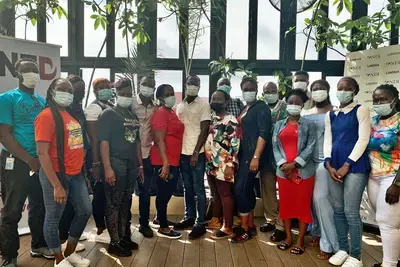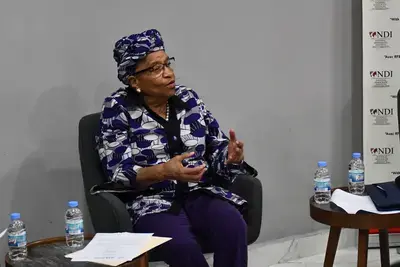
Success Story
Student's Moving Testimony on Sanitation Sparks Renewed Efforts
Theresa Kanneh, a 17 year old in her final year at G.W. Gibson High School in Monrovia, stood in front of a group of Liberian senators in the Joint Chamber of the Legislature. She described the poor state of water and sanitation conditions in Liberian schools. Conditions are so poor, she said, that students are forced to relieve themselves in bushes due to a lack of working toilets, interfering with their ability to learn.
She was testifying at a May 5 hearing put on by the Liberian Senate Joint Committee on Public Works and Rural Development and Public Corporations, which examined water, sanitation and hygiene (WASH) issues in the country. Kanneh’s vivid description moved Senator Oscar A. Cooper, the panel’s chairman, to promise to renew efforts for reform.
“I would, on behalf of the Senate, apologize to you, the young students of this country, for not providing the necessary WASH facilities you need in your school,” he said. “I will ensure the Liberian Senate takes appropriate steps.”
The hearing was initiated by a letter from Senator Joyce Sumo of Montserrado to the Liberian Senate. It called attention to WASH problems that Liberians face every day and urged the Liberian legislature to take swift action to revamp the WASH sector. It was written after she attended an investigative study mission for legislators on water and sanitation organized by NDI and its partner, the WASH Network, earlier this year.
The hearing attracted a diverse group of Liberians. Participants included students, persons with disabilities, and civil society representatives. NDI worked with committee leaders as they selected session topics and helped civic groups prepare testimony. The event was recorded and then aired on national television.
Representatives from the WASH Network and the CSO Consortium on Natural Resource Management (NRM), another NDI partner, also testified. The WASH Network chairman, Prince Kreplah, asked the legislature for more funds to help build sanitation facilities, increase access to potable water, and provide education on hygiene practices. The NRM described the need for environmentally friendly policies to avoid the harmful effects of current sanitation conditions, such as how to properly extract water as a natural resource.
The Joint Committee has drafted a report that will be presented to the Liberian Senate. Recommendations include the centralization of WASH services under an organized and efficient authority and an increase in funding to rebuild facilities at the Liberia Water and Sewer Corporation. In the coming months, the Liberian Senate will determine a more concrete plan for improving sanitation as part of a campaign spearheaded by Senator Oscar A. Cooper and Senator Joyce Sumo for reform.
Read more:
Published June 17, 2014



